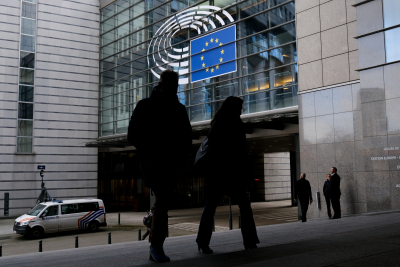The discussions around tax transparency and country-by-country reporting (CBCR) are not solely about economics, they’re also about accountability. Multinational companies may be global, but their activities and impacts are always local. Companies should therefore be accountable to local communities for this impact on their societies, including financial impact.
For European companies who are aware of the need to earn their social licence to operate country-by-country reporting can create long-term shareholder value in dialogue with all stakeholders – customers, employees, investors, the media and even civil society organisations. This dialogue requires honesty, openness and accountability.
We have been asking EU policy makers for this legislation for about a decade now. Now is the best opportunity so far to ensure public scrutiny over the fiscal contributions of large business, by which we mean scrutiny by citizens, journalists, investors, analysts and even parliamentarians to help them improve accountability.
Fortunately, public disclosure will add value to other global initiatives in many different ways. Firstly, it will help advance the fight against corruption, in particular in countries where the risk of corruption is higher, by helping to expose cases where corrupt government officials have struck favorable tax deals with large corporations.
It will also facilitate better tax outcomes. It can do this by providing help to tax administrations in developing countries that are often not equipped to engage in cumbersome data exchange systems. And it will deter companies from engaging in the most egregious forms of tax avoidance by making them accountable to the court of public opinion.
These benefits are available at no cost to the competitiveness of European companies or the prospects for the EU’s economy. As assessed in our report ‘Do Corporate Claims on Public Disclosure Stack Up?’ 28 multinationals show no definite trend nor correlation between public CBCR and standard measures of competitiveness, and no evidence of any negative impact of public CBCR. In fact, 86% of the European companies assessed, which already report on a CBC basis improved or maintained their revenue performance.
The claim that competitiveness will be at risk when important trade secrets are exposed to view is not credible. All the big players have economic intelligence departments and already have most of the information on their competitors – they don’t need public CBCR data to find out about these so called “secrets”. The data included in the public CBCR is already available in business registers.
Public CBCR will also allow investors determine how healthy a company really is and whether or not the profits are merely a reflection of aggressive tax planning. A key concern is that it is impossible for investors to correctly assess the value of a company unless they have reliable information about future cash flows, and in many cases taxes will significantly affect those cash flows. And this is not just small time operators. Norway’s sovereign wealth fund, the largest of its kind in the world, set out clear expectations to the multinational companies in which it invests, that they should pay their taxes where they generate their economic value and that they should publish their country by country reporting information.
With better transparency rules in place for big multinationals, small and medium enterprises will be able to operate in and environment with a better level-playing field between large and small firms. According to a European Commission’s Impact Assessment, a company with cross-border operations in the EU is estimated to pay on average 30% less tax than a similar firm active in only one country. It also states that a fairer distribution of fiscal pressure between SMEs and large MNCs could “further SME’s capacity to support growth and job creation, and could further market entry, competition, and innovation.”
Responsible businesses have nothing to fear from an informed debate on #tax or greater #transparency. John Connors, Vodafone at #TaxdayEU pic.twitter.com/EORvXvLFe9
— Accountancy Europe (@AccountancyEU) May 30, 2017
And finally, public CBCR legislation will have advantages for multinational companies themselves. As long as multinationals’ activities, structures and tax payments remain secret, there will be incentives for the media and others to publish fiscal information in a format over which taxpayers have no control.
Transparency can result in more public and political comprehension of the tax strategy of transparent companies, bridging the gap between businesses and public opinion and strengthening public trust. Companies in the extractive sector and banks are already publishing this information and they have not suffered from scandals affecting their reputation. John Connors, Vodafone’s Tax Director, publicly stated: “Responsible businesses have nothing to fear from an informed debate on tax or greater transparency.”
We do not believe that the proposed directive delivers on its main objective. The legislation will effectively allow multinationals to continue to disguise the extent of profit-shifting outside the EU and will continue to keep citizens in the dark. It will also make the measure useless for the governments and citizens of developing countries, making it impossible for them to identify cases of tax avoidance and take appropriate measures to unlock much-needed funding for their development. And finally, it will add to the risk of misinterpretation, as partial coverage of a selected list of countries will only give the public access to partial information about a firm’s activities.




